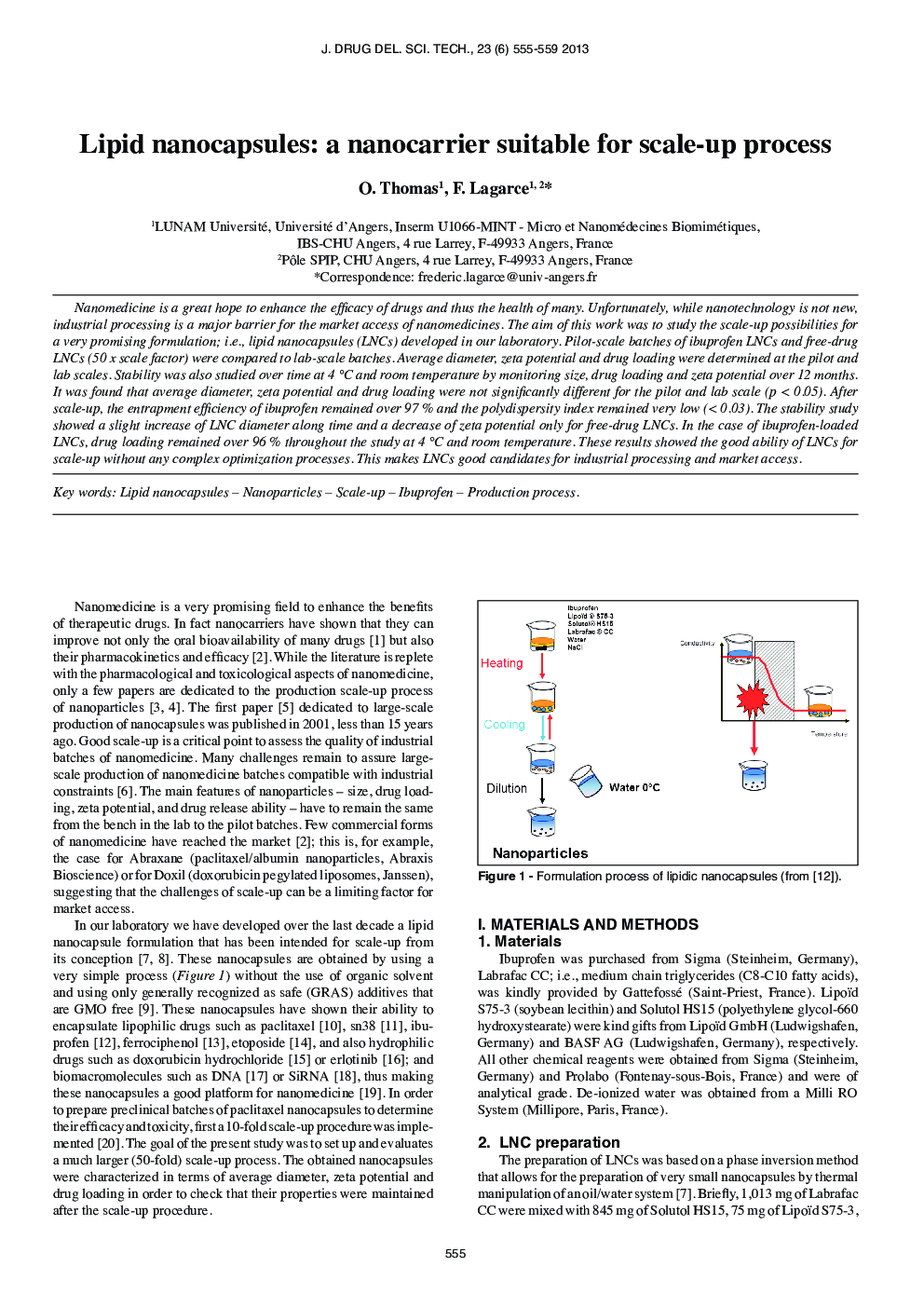| Article ID | Journal | Published Year | Pages | File Type |
|---|---|---|---|---|
| 2483417 | Journal of Drug Delivery Science and Technology | 2013 | 5 Pages |
Nanomedicine is a great hope to enhance the efficacy of drugs and thus the health of many. Unfortunately, while nanotechnology is not new, industrial processing is a major barrier for the market access of nanomedicines. The aim of this work was to study the scale-up possibilities for a very promising formulation; i.e., lipid nanocapsules (LNCs) developed in our laboratory. Pilot-scale batches of ibuprofen LNCs and free-drug LNCs (50 x scale factor) were compared to lab-scale batches. Average diameter, zeta potential and drug loading were determined at the pilot and lab scales. Stability was also studied over time at 4 °C and room temperature by monitoring size, drug loading and zeta potential over 12 months. It was found that average diameter, zeta potential and drug loading were not significantly different for the pilot and lab scale (p < 0.05). After scale-up, the entrapment efficiency of ibuprofen remained over 97 % and the polydispersity index remained very low (< 0.03). The stability study showed a slight increase of LNC diameter along time and a decrease of zeta potential only for free-drug LNCs. In the case of ibuprofen-loaded LNCs, drug loading remained over 96 % throughout the study at 4 °C and room temperature. These results showed the good ability of LNCs for scale-up without any complex optimization processes. This makes LNCs good candidates for industrial processing and market access.
